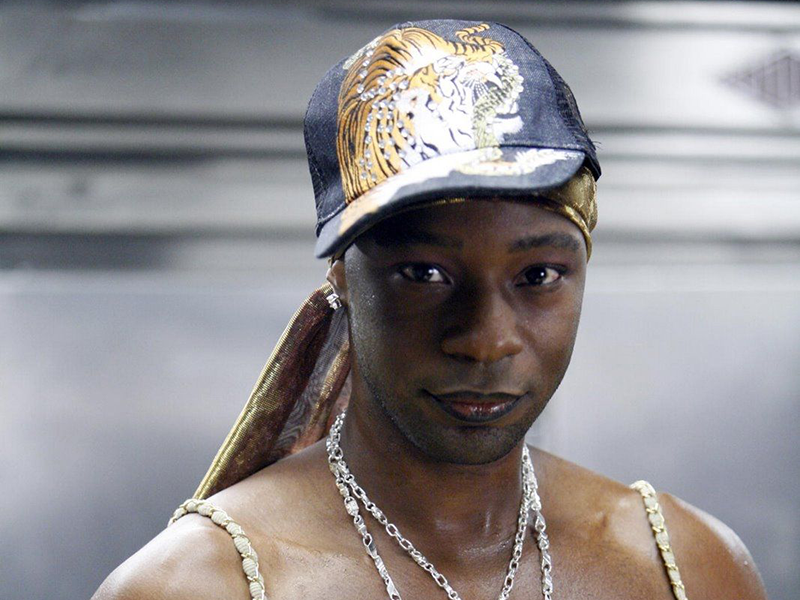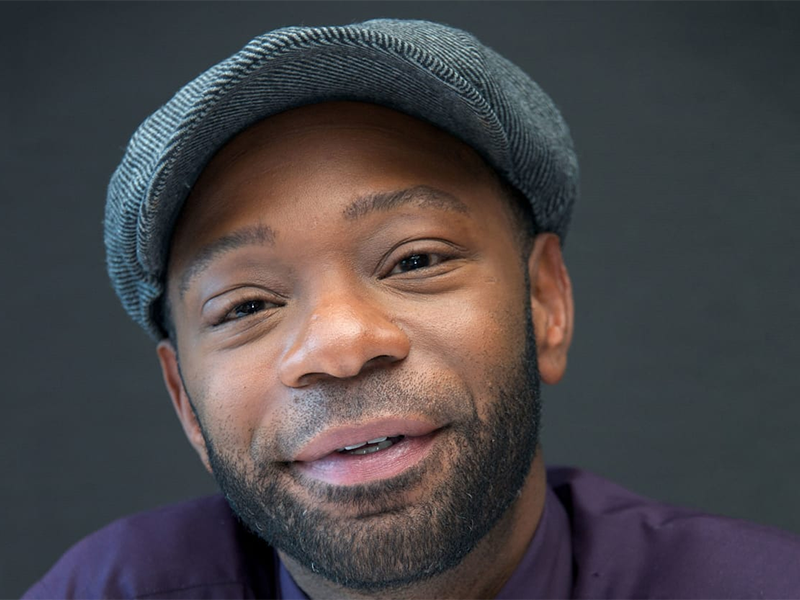
Nelsan Ellis, the actor most known for his charismatic and inspiring portrayal of Lafayette Reynolds on the horror drama True Blood, died Saturday, July 8, 2017 at the age of 39. In addition to his role as Lafayette, Ellis played Martin Luther King, Jr. in The Butler, Bobby Byrd in the James Brown biopic Get On Up, and Shinwell Johnson on the Sherlock Holmes-inspired detective series Elementary. We will never know what more he might have done in his career, because even for Black artists who achieve creative and commercial success, Black health is still neglected in the US.
Lafayette dies at the end of the first book of The Southern Vampire Mysteries series by Charlaine Harris (on which True Blood was based), but Lafayette was so popular with fans that he stayed alive on the HBO series for all seven seasons. His characterization was beloved like few others. And when we heard the news of Ellis’s death, many of us responded with surprise that someone not even 40 years old could die of heart failure. The most common response has been that “he was so young.” But it might not shock us at all if we knew that at the same time as HBO made their official statement, and True Blood creator Alan Ball, as well as Anna Paquin and other actors who knew Ellis tweeted their official condolences, Black people all over the US continued to suffer from health problems in disproportionate numbers.
More has been written about Black health than has been written about Sookie Stackhouse (even considering fanfiction). Mountainous statistics have been collected and published. There is more data available than a single essay could ever reference, but an overview from Centers for Disease Control and Prevention (latest available figures, 2014) show us that Black Americans have higher infant mortality rates, higher hypertension rates, and lower life expectancy. And it’s not just genetic chance. Racism is a public health issue in the US.
A study released by Boston University researchers links racism to adult onset asthma, finding that the stress of living with racism manifests itself in the immune system and airways of Black women. The predisposition of passing asthma onto children is greater for females than for males of any ethnicity, yet Black children are twice as likely to have asthma as White children and 10 times more likely to die of complications from asthma. Geneticist Marquitta White published a study that found that most of the genetic information scientists have on asthma patients doesn’t even apply to Black people. “The majority of genetic studies, not just in asthma but in most diseases, are done in Caucasian- or European-descent populations,” she explained to Morning Edition on NPR. “The longest studies do not really include very many minority populations, which means that most patients aren’t getting the best care, because we don’t really know what the disease etiology is in their particular population.” In healthcare, a $3 trillion industry as infused with White supremacist notions as any other, Black lives are neglected.
Psychology Ph.D candidate Kelly Hoffman led a study at the University of Virginia that queried 222 White medical students and found that a full fifty percent of them believed in pseudoscientific biological differences between Black and White people, including the outright nonsense that Black people age more slowly, that their nerve endings are less sensitive, that their blood coagulates more quickly, and that their skin is thicker than White people. These aren’t high school dropouts handing out fliers for the Ku Klux Klan. These are people studying to practice medicine who likely consider themselves compassionate and progressive.
Some of us (who likely also consider ourselves compassionate and progressive) have responded to the report that Nelsan Ellis died from complications of alcohol withdrawal by implying that he was somehow the cause of his own demise. To help others who also struggle with addiction, though, Ellis’s family released a statement to The Hollywood Reporter:
Nelsan’s father has bravely agreed for me to share the circumstances of Nelsan’s heart failure. Nelsan has suffered with drug and alcohol abuse for years. After many stints in rehab, Nelsan attempted to withdraw from alcohol on his own. According to his father, during his withdrawal from alcohol he had a blood infection, his kidneys shut down, his liver was swollen, his blood pressure plummeted, and his dear sweet heart raced out of control.
Researchers find that Black Americans report lower rates of alcohol use than White Americans, but have disproportionally higher levels of alcohol-related problems, including legal problems related to drinking, even at the same levels of consumption as White Americans. And Black people struggling with addiction as Ellis was have less lifetime access to health care, are statistically less likely to visit doctors and therapists, and are less likely to be referred to specialists. No one could have done what Ellis was trying to do, alone.
If you cherished Lafayette’s effortless transition from flamboyant to masculine and back again, use your voice—in person and online—to educate, to advocate, to vote for initiatives that improve the health and wellness of Black lives. Caring for Black lives needs to begin off-panel, off-screen, before performers are cast in roles as our favorite characters. It needs to begin with prenatal care and continue throughout the real lifetimes of the real people playing these characters. If you work in health care, promote patient dignity and personal responsibility, improve communication, pay special attention to cultural context. Much of the problem is structural racism that needs to be entirely dismantled, but what we do on the ground as individuals is important too. Get involved with the Black Lives Matter movement. It’s not only about police violence. It’s about lives that are systematically and intentionally targeted for demise, from the delivery room to the convalescent home.
What if these real life struggles affected our favorite characters in fiction?
Statistically, Finn might not live much longer than the events of Star Wars: Episode IX. Black Lightning wouldn’t be able to fight sickle cell disease the way he fights Tobias Whale. For every Michonne, there’s a Black girl who would die in the forests of Georgia as a result of asthma long before the walkers got to her. For every Luke Cage, there’s an HIV-positive Black man unjustly incarcerated as a result of HIV criminalization. For every Ororo Munroe, there’s a Black woman weathering the storm of being a victim of domestic violence but denied pain medication in the emergency room. It hurts to imagine T’Challa wasting away for lack of care. It should hurt a lot more to imagine the same about real people.
Because for every Lafayette Roberts, there’s a Nelsan Ellis who doesn’t get to live long enough for a cast reunion at a future comic con. May increased awareness of Black health be our memorial to our favorite short order cook and psychic medium.

Rest in Power
Nelsan Ellis
November 30, 1978—July 8, 2017







0 Comments